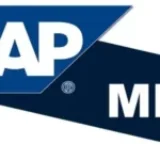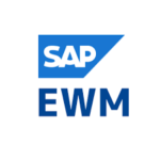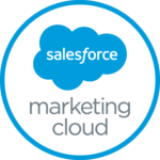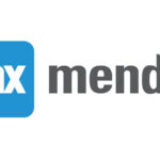Informatica IICS
Golive Classes, a leading training company to learn Splunk admin course and certification with real-time project material, useful notes, and details.
About Course
Master Informatica IICS course online with Golive Classes. We provide the best Informatica IICS course online in Hyderabad and other states in India.

Informatica IICS
Informatica IICS Online Training Course Content
- Introduction to ETL System
- Overview of Staging Area/Staging Layer
- Need of ETL System Design
- Difference between OLTP systems and OLAP systems
- Overview on Data Warehousing concepts
- Introduction to Data Modeling
- Overview on RDBMS Systems
- Construction of DWH/Data marts using ETL System
- Introduction to IICS
- Difference between Powercenter and IICS
- Installation of ICSA, and Oracle Database
- Overview on IICS Tools:
- Cloud Administrator
- Runtime Environment:
- Service Management
- Connections (RDBMS, Files)
- Cloud Data Integration
- Create a Project
- Assets: Mappings, Mapping Tasks, Taskflow, ISM, etc.
- Monitor
- Create users and users groups and assign privileges
- Cloud Data Integration:
- Working with Sources (Single and Multiple Objects, File Objects)
- Working with Targets
- Working with Filelist
- Transformations:
- Active and Passive transformations
- Connected and Unconnected
- Transformations List:
- Include, Exclude, And Rename Fields.
- Expression
- Aggregator (Sorted and Unsorted, Incremental )
- Rank
- Filter
- Router
- Lookup
- Connected
- Unconnected
- Difference between Dynamic Lookup, Static Lookup, Persistence Lookup
And Re-cache from the source
- Stored Procedure and function
- Connected
- Unconnected
- Transaction control
- Normalizer
- Sequence generator
- Union
- Joiner ( Normal, Master outer, detail Outer, Full Outer)
- Sorter
- Advanced Transformations:
- Java Transformation
- SQL Transformation
- Best practices when building mappings
- Construction of complex mappings for dimension tables and fact tables
- Dimension mappings:
- SCD type-0,1
- SCD type-2
-
- Flag current data
- Effective data range
- Version number mapping
- SCD type-3
- Design type-1, type-2, and type-3 dimensions for various requirements within a single mapping
(HSCD).
- Working with rapidly changing dimensions (Monster Dimensions)
- Construction of the complex mappings for Data warehousing
- Analysis of Business user requirements
- Combined type-1,type-2 and type-3 in a single mapping
- Working with Rapidly Changing dimensions (RCD).
- ASCD’s
- Development of the target tables based on business user requirements
Working with Dimensional Models (Star Schema, Snowflake, Galaxy)
- Relational Sources:
- Import source tables from different data bases
- Define the relationships, Filters, Presql, Postsql, SQL Override,etc
- Relational Targets:
- Properties explanation of the transformations
- Differences between Join Condition Defined in Source level and joiner transformation with practical explanation
- Difference between filter and router transformations with practical explanation
- Difference between expression and aggregator transformation with practical explanation
- Working with Synchronization Task
- Working with Replication Task
- Working with Powercenter Task
- Working with Intelligent Structure Model (ISM)
- Working with Mapplets
- Design sequential and concurrent batch workflow
- Explanation of the different types of the memories
- Buffer, Cache
- Mapping parameters and variables creation
- Parameter file creation
- Parallel Pipeline partitioning
- Creation and deletion of partitioning points
- Execution of the mappings:
- Normal loading
- Bulk loading
- Target Load Plan
- Constraint based loading
- Types of Caches:
- Index
- Data
- In-memory
- Lookup cache:
- Static
- Dynamic
- Re-cache from source
- Persistent cache
- Shared cache
- Working with Parallel pipeline partitioning mechanism:
Source level, transformations level and target level.
- Introduction Threads (Reader, Transformation, Writer, Pre session and Post Session)
- Types of threads:
- Reader thread
- Transformation thread
- Writer thread
- Pre-session thread
- Post-session thread
- Analysis of BRS
- Development of RRS
- Sample project development:
- Star Schema Design with Dimension Tables and fact table.
- Overview on Natural Key, Surrogate Key , Composite Key and candidate key
Splunk Admin Course Content Download Link
Want to book a Demo for this awesome Splunk Admin Course? Click Register.











